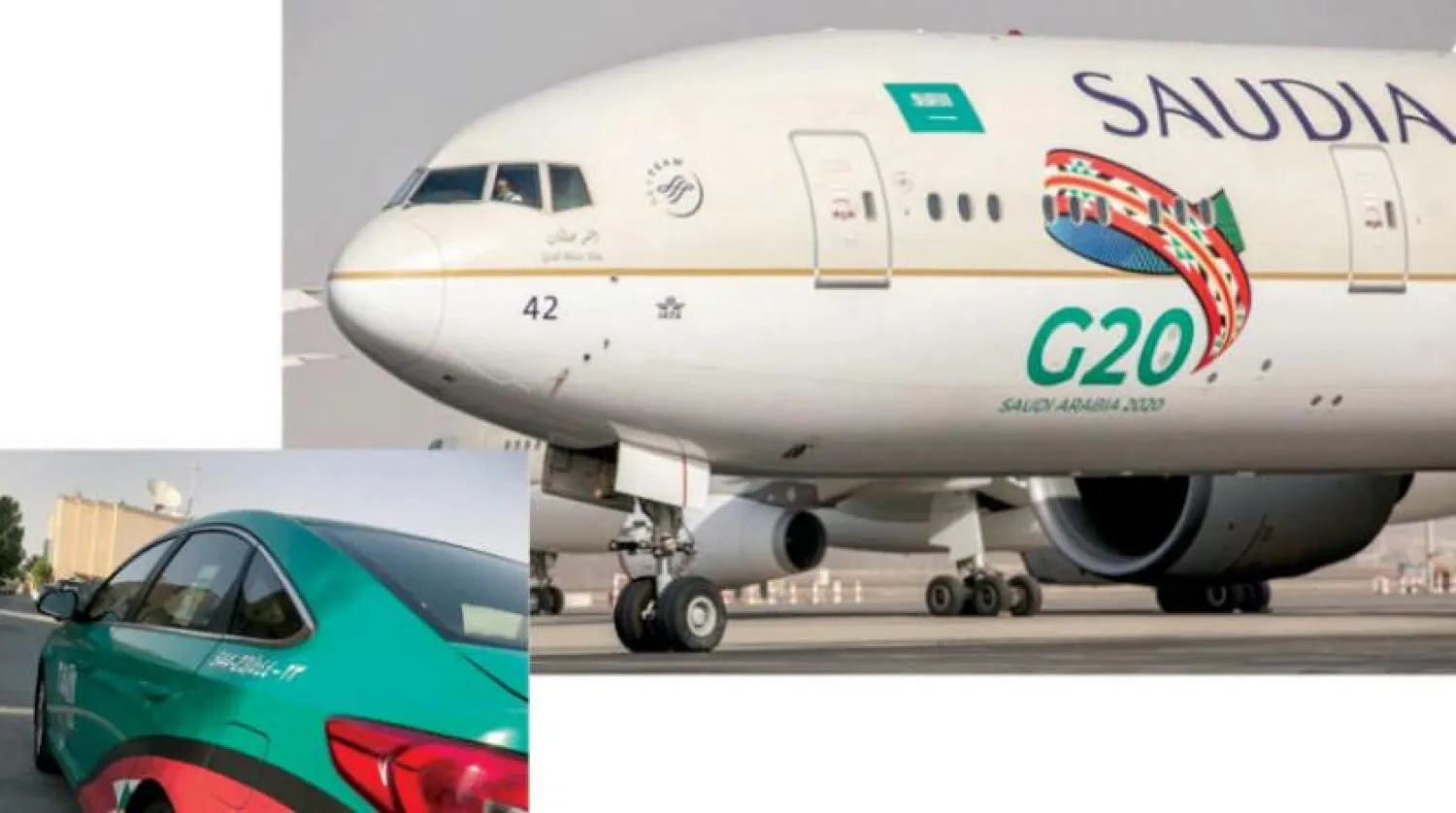The logo of the Saudi presidency of the G20 took over the cities of the Kingdom, reflecting the citizens’ pride in their country’s hosting of the leaders of the world’s biggest economies.
Buildings, taxis, airplanes, stadiums, and street walls across the Kingdom were decorated with the logo that represents a colorful piece of the traditional 'Sadu'. The logo has also invaded the social media platforms.
Saudi Arabia assumed the G20 2020 Presidency on the first of December, 2019. The group started to hold its meetings in Saudi cities in the presence of various specialists and experts from around the world, but the Covid-19 pandemic forced the member-states to resort to virtual meetings since last March when the virus spread globally.
The logo was inspired by colored filaments from Bedouin fabrics and featured the colors of participating countries. It was designed by 28-year-old Saudi Mohammed Al-Hawas, who was selected among several participants, following a competition featuring many Saudi designers who presented about 30 slogans.
Salman Al-Qahtani, director-general of a leading taxi group, told Asharq Al-Awsat: “There was an initiative by the Public Transport Authority to place the G20 logo on taxis... We responded without hesitation to the call and issued a decision to place the logo on all vehicles belonging to the company.”
Abdullah Abdul-Ghani, a PR consultant, noted that although the G20 Summit was a global economic event of an official character, Saudi citizens celebrated it with a spirit of festive hospitality and feelings of joy and pride, reflecting the authentic Arab and Islamic values and the national history of achievements and contributions to justice, security, and peace in the world.









